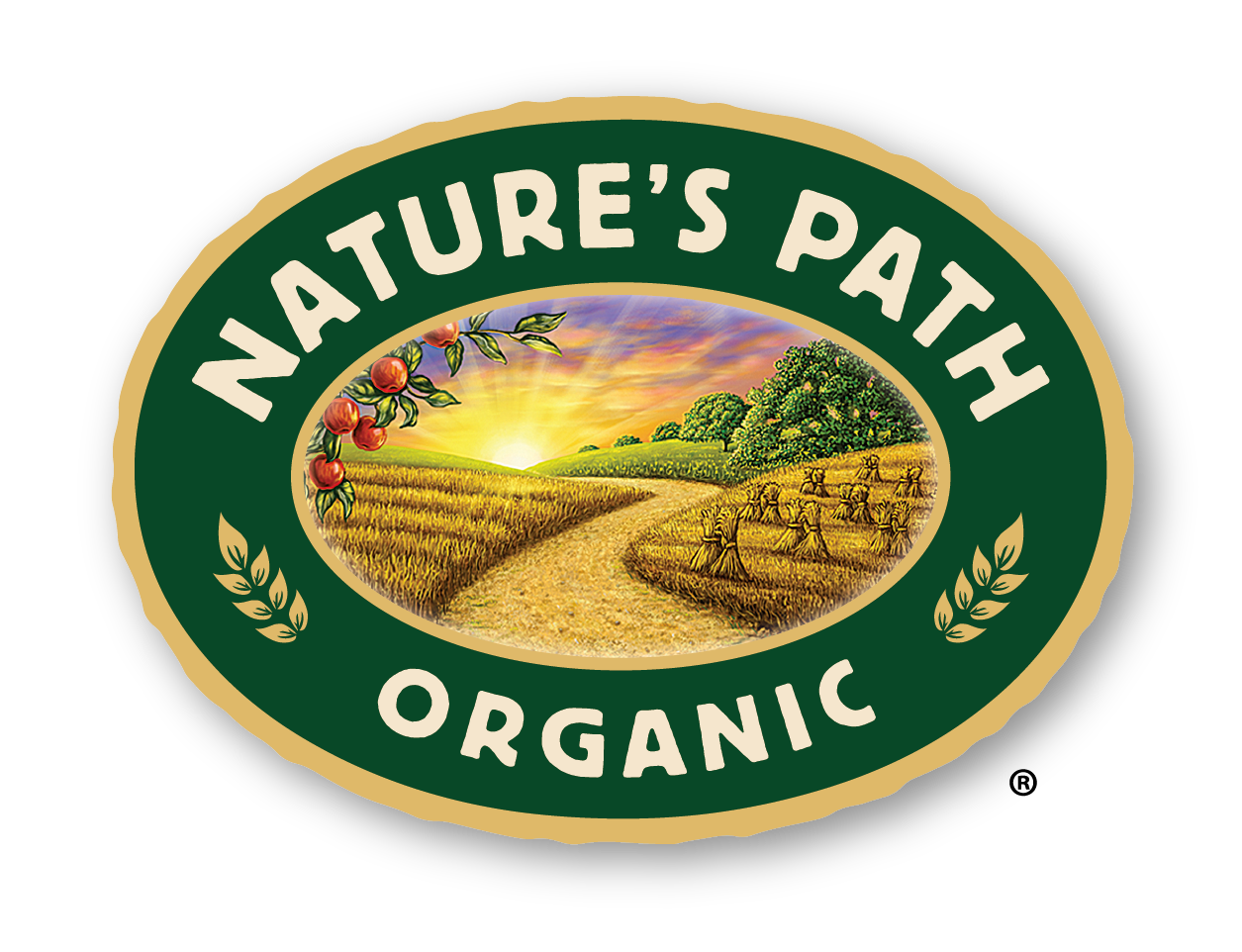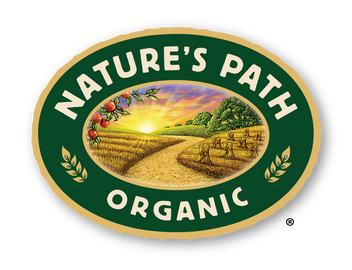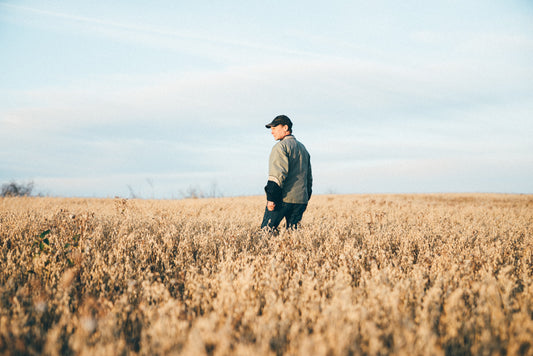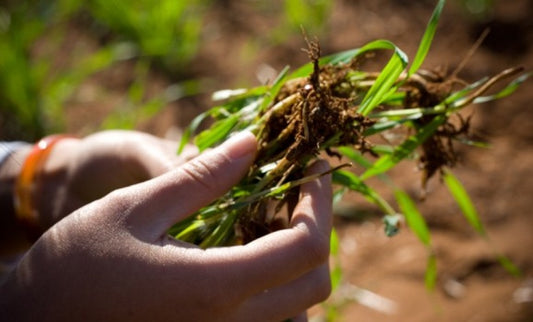Strolling the farmers market or touring the countryside, it’s easy to begin dreaming yourself onto a farm – its fresh air, honest work, and literal fruits of your labor beckon you to ditch your day job and buy a piece of land. While the ever-growing organic food movement has small farms trending again, that life is truly only for the most determined among us. For everyone else, there are books.
Farmer and writer are both titles one doesn’t come by easily, each requiring determination, risk-taking, and deep patience, all without the guarantee of a reward. When a farmer manages to also become a writer (or vice versa), it’s an impressive feat. Not only are they two distinctly challenging professions, they are often in competition with one another: a farmer’s long day leaves little time or energy for writing, and a published writer’s obligations can pull them away from the farm. Despite the obstacles, some persist and we are the fortunate beneficiaries of their hard work.
The following is a list of books by farmer-writers and writer-farmers. Their stories are rife with heartache, failure, and exhaustion, and brimming with commitment to land & community, hope, and description after delicious description of farm-fresh food. These books may be the closest many of us get to life on an organic farm, and they have much to teach us about the
true cost of food – emotional, social, historical, and environmental, as well as economic:
Few books on organic farming are so revered as this one written by a Japanese scientist turned natural farming pioneer. First published in 1975, The One-Straw Revolution has inspired countless organic farmers to set conventional wisdom aside and learn through observation of and partnership with the natural forces at work on their farm.
Part personal meditation, part scientific exploration, The One-Straw Revolution is Fukuoka’s account of how he evolved from a brazen young plant pathologist into an eccentric farmer who baffled his neighbors by not plowing or flooding his rice fields, nor applying fertilizers or pesticides. Fukuoka’s philosophical musings sprinkled among observations from his fields make this a profound and educational read.
If you’ve ever wondered what it might really be like to trade the city for the countryside, this is the book is for you. With deft and honest prose, Kimball brings to life her journey from living as a journalist in New York City to co-owning and operating Essex Farm, a 600 acre horse-powered, year-round, full-diet organic CSA farm in upstate New York. Spoiler: that journey was not an easy one!
As Kimball rides the roller coaster of emotions from inspiration and joy to exhaustion and despair (and back again), she unfolds a truth that all innovators face eventually – that the change you envision comes at a price you are not always willing to pay. As Kimball, along with her farm-partner and husband, Mark, limp through the first few years of full-time farming, their triumphs and failures reveal a complicated balance between their ideals and their reality. What emerges is an authentic account of what “making it” in organic farming really means.
The tale of how a third-generation Japanese-American farmer resisted the rules of commodity farming for the sake of flavor, Epitaph for a Peach is a personal account of a global story.
As Masumoto watches his neighbors bulldoze their heirloom peach trees to replant varieties better suited for shipping and storing, he hesitates (to the disappointment of his father), leaving his heirloom trees in the ground and planting wildflowers between them in an effort to attract beneficial insects. What follows is four seasons of Masumoto’s often fraught but eventually successful attempts at converting his family’s conventional peach orchard to organic, while bucking the industry trend of quantity over quality. Masumoto’s storytelling is as humble as it is delicious – by the end of the book, you’ll be ready to hop on a plane to California just to taste one of his Suncrest peaches.
Poet, novelist, environmental activist, farmer, and long-time organic farming advocate – Wendell Berry is many things to many people. Bringing it to the Table, a collection that gathers essays from more than 30 years of Berry’s career, takes a three-pronged approach, exploring Berry’s thoughts on farming, farmers, and food, using insight from his own farming experiences and those he has observed in his travels as a speaker and activist.
Raised in rural Kentucky and farming a 125-acre plot of land there since 1964, Berry has a deep reverence for the rural way of life that flows through all of his written work. Conviction, insight, and eloquence are hallmarks of Berry’s writing well-represented in this thoughtful and revelatory collection, one that will leave the reader feeling intimately informed on some of the most important food issues of our day.
In this collection, beginning farmer and food justice activist Natasha Bowens hit the road with Kickstarter funds to chronicle the work of farmers dedicated to serving food-insecure communities. In the process, she weaves a revealing portrait of the “good food” movement’s least-recognized players: immigrant and minority farmers. While people of color tend to be the most negatively impact by the broken food system, they are also one of the least represented populations in the small farm and organic food movements.
Through amplifying the stories of individual farmers, Bowen’s book seeks to redefine the relationship between people of color and agriculture, moving it away from its troubled past toward a future where diversity and representation translate to a healthier, more resilient, and better tasting farming future.
Long-time farmer and food activist Michael Ableman has grown organic food in the city, the country, and the suburbs, fighting for farmland protection and the right to healthy food the whole way. His most recent book, Street Farm, chronicles his time working with residents of Vancouver, British Columbia’s “Low Track” neighborhood (notorious for issues with substance abuse, poverty, and crime) to build Sole Food Street Farms.
Now North America’s largest urban farm, Sole Food grows artisan-quality vegetables and fruits, the sale of which sustains the farm and empowers its farmers. Street Farm documents the specific ways food and farming can transform lives and create community, while making a convincing argument for how badly our cities need this kind of nourishment.
Would you like to be the first to hear about our new products and more?
Sign up for our Nature’s Path Newsletter.








